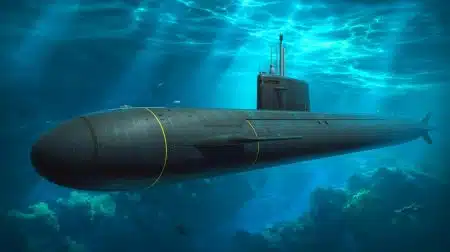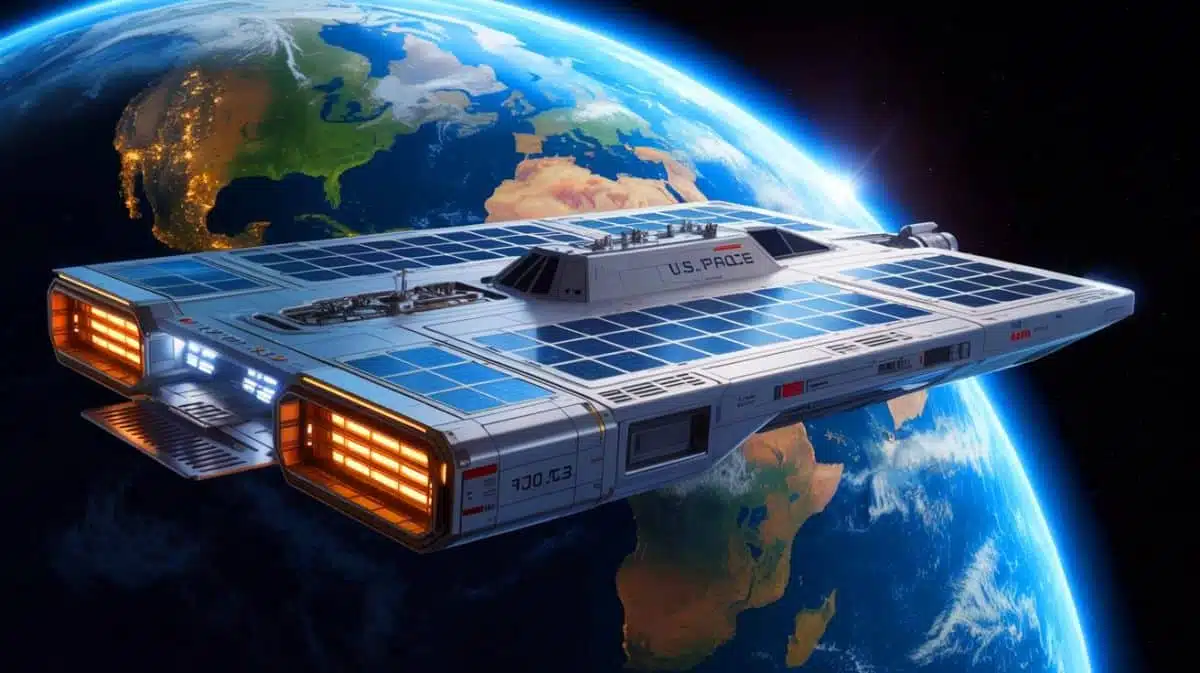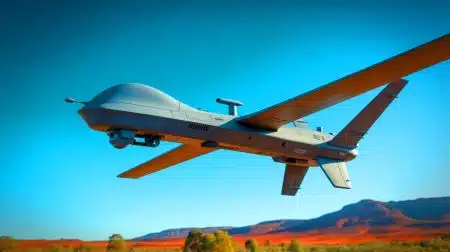| IN A NUTSHELL |
|
In a groundbreaking move to bolster national security, the U.S. Space Force has unveiled plans to develop a revolutionary spacecraft carrier designed to counteract potential orbital threats. This initiative is a direct response to the escalating militarization of space by nations like Russia and China, who are developing advanced weaponry aimed at disabling Western satellites. With a contract valued at up to $60 million, the Space Force aims to establish a formidable presence in space, ensuring that any potential adversary thinks twice before engaging in hostile activities.
The Changing Dynamics of Space Warfare
Space has long been regarded as a peaceful domain, free from the conflicts that plague Earth. However, recent developments have shattered this notion, as nations race to develop technologies capable of disabling or destroying satellites. During the Cold War, space weaponry was largely theoretical, with few real-world implementations. The Soviet Union’s secret installation of an aircraft cannon in the Salyut 3 space station in 1973 was a rare exception, highlighting the potential for conflict in space.
Today, the threat landscape has evolved significantly. Russia and China are aggressively pursuing technologies such as radio jammers, laser and microwave weapons, and kinetic kill vehicles. These advancements pose a significant risk to Western satellites, which are critical for communication, surveillance, and navigation. The potential for conflict in space is a growing concern, prompting the U.S. Space Force to explore innovative solutions to deter and mitigate these threats.
“They Hit Like Ghosts in the Sky”: How F-22 Raptors Shocked ISIS in Their First Combat Operations
Introducing the Orbital Carrier
To address these challenges, the Space Force has contracted Gravitics to develop an innovative Orbital Carrier. This spacecraft carrier will serve as a mobile launch platform, housing multiple maneuverable space vehicles ready to deploy at a moment’s notice. Similar to the fictional spacecraft in popular science fiction, the Orbital Carrier will enable a rapid and flexible response to any threats that arise in space.
The strategic importance of this development cannot be overstated. By maintaining a constant presence in orbit, the U.S. and its allies can deter potential aggressors and ensure the continued functionality of critical satellite infrastructure. This approach mirrors the role of NATO carrier groups in maintaining maritime security, providing a robust deterrent against hostile actions.
Strategic Funding and Partnerships
The development of the Orbital Carrier is made possible through the Strategic Funding Increase (STRATFI) initiative by SpaceWERX, a division of the Space Force. This funding underscores the importance of maintaining space superiority and highlights the commitment of the U.S. to protect its interests beyond Earth’s atmosphere.
Gravitics, the company tasked with building the Orbital Carrier, brings extensive experience in constructing large space structures. Their expertise in developing outposts and cargo craft makes them an ideal partner for this ambitious project. CEO Colin Doughan emphasizes the transformative potential of the Orbital Carrier, describing it as a “game-changer” that will revolutionize space operations by offering unprecedented deployment flexibility.
Looking to the Future: Demonstrations and Implications
A demonstration of the Orbital Carrier is anticipated as early as next year, marking a significant milestone in the evolution of space defense capabilities. This demonstration will provide valuable insights into the carrier’s operational capabilities and its potential to enhance national security.
The implications of deploying such a platform are profound. By establishing a pre-positioned launch pad in space, the U.S. can bypass traditional launch constraints and rapidly respond to emerging threats. This capability is crucial for maintaining a strategic advantage in an increasingly contested domain. As nations continue to vie for dominance in space, the development of the Orbital Carrier represents a pivotal step in safeguarding the future of space exploration and utilization.
As the U.S. Space Force moves forward with this visionary project, it raises critical questions about the future of space security. How will this development influence international relations and the balance of power in space? Will other nations follow suit, leading to a new era of space-based deterrence? The answers to these questions will shape the trajectory of space exploration for years to come.
Did you like it? 4.4/5 (20)







Wow, $60 million? That’s quite the investment! 🚀
Les vaisseaux spatiaux qui se battent dans l’espace… Ça me rappelle Star Trek!
I’m skeptical. Can this really prevent satellite attacks?
Gravitics seems to be the right choice for this ambitious project.
Pourquoi la Space Force a-t-elle attendu si longtemps pour agir? 🤔
This sounds like science fiction becoming science fact! 😎
La militarisation de l’espace est-elle vraiment nécessaire?
Good luck to Gravitics! Hope the Orbital Carrier is a success. 🌌
Quand est-ce qu’on verra une démonstration de cet Orbital Carrier?
Isn’t there a better way to ensure peace in space than building warships?
This project is going to change how we think about space defense.
Peut-on vraiment comparer ça à un groupe de porte-avions de l’OTAN?
Can we expect more international cooperation in space because of this?
SpaceWERX’s strategic funding seems crucial for this venture.
Est-ce que le projet de Space Force va vraiment protéger les satellites ou c’est juste un coup de pub?
Hope this doesn’t start a new space race. 😬
Who else thinks they should have consulted more with NASA on this?
Je suis intrigué par la flexibilité de déploiement de ces véhicules spatiaux.
Will this really provide a strategic advantage over other nations?
How does this affect the commercialization of space?
Ça me fait penser à des batailles spatiales dans un film de science-fiction. 😂
Hopefully, this doesn’t lead to more space debris.
La protection des satellites est essentielle, mais à quel prix?
When can we expect to see the first operational Orbital Carrier?
Est-ce que d’autres pays vont suivre l’exemple et construire leurs propres transporteurs orbitaux?
This is a bold move by the U.S. Space Force!
Why is Gravitics considered the best partner for this project?
Les implications de ce projet sont énormes pour la sécurité nationale.
Will this lead to a new form of space-based diplomacy?
Félicitations à tous ceux qui travaillent sur ce projet innovant! 🌟
Shouldn’t we focus on peaceful uses of space instead?
What will be the first mission of the Orbital Carrier once it’s operational?
Looks like we’re entering the era of Star Wars, but with real spaceships! 😄
Merci à la Space Force pour protéger nos actifs spatiaux. 🇺🇸
What happens if Russia or China decides to develop similar orbital carriers?
J’espère que cela ne déclenchera pas une course aux armements dans l’espace…
Isn’t $60 million a bit too much for something that might not even work?